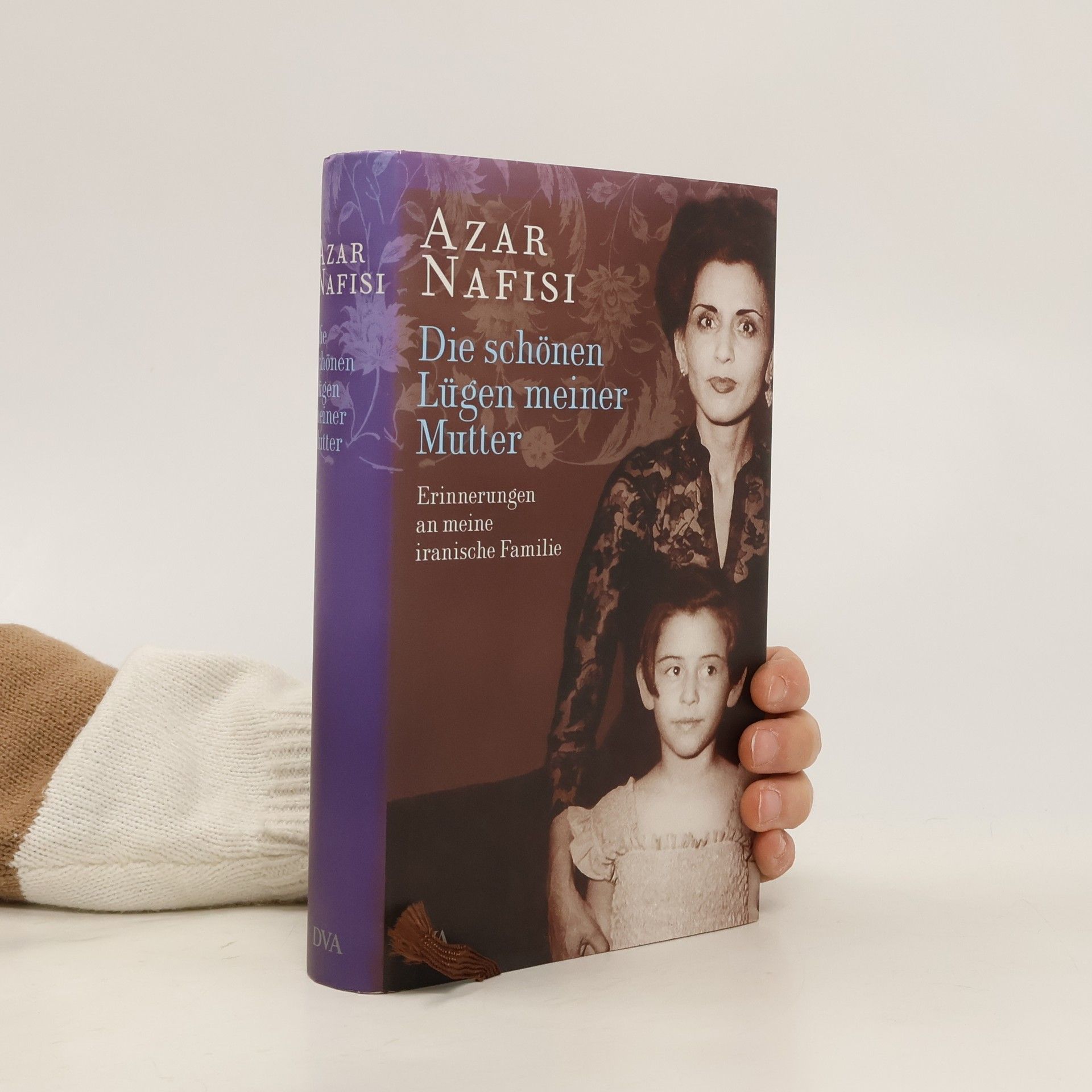Po dobu dvou let, než byla roku 1997 přinucena Írán opustit, organizovala Azar Nafisiová ve svém teheránském domě tajné týdenní debaty o zakázaných západních autorech, jichž se účastnilo sedm z jejích bývalých studentek literatury na teheránské univerzitě. V prostředí sílící cenzury a útlaku ze strany státních úřadů a strážců veřejné morálky představovala svobodomyslná výměna názorů o dílech Jane Austenové, Henryho Jamese, F. Scotta Fitzgeralda a Vladimira Nabokova pro všechny zúčastněné nemalé riziko, tím spíše, že záhy začala přerůstat úzký rámec hovoru o literatuře, jak do diskuse vzrůstající měrou vstupovaly osudy samotných diskutujících. Autorčino mimořádně působivé vyprávění představuje jedinečné osobní svědectví o nedávné minulosti i současnosti Íránu, údělu íránských žen tváří v tvář islámské teokracii, potřebě odporu vůči tyranii jakéhokoli druhu a osvobozující síle literatury, českým čtenářům však bezpochyby připomene i poměry panující v někdejším totalitním Československu.
Azar Nafisi Knihy
Azar Nafisiová se jako autorka zaměřuje na propojení literatury a společenského života, zejména v kontextu Íránu. Ve své tvorbě zkoumá sílu příběhů a jejich vliv na individuální i kolektivní vnímání reality. Její práce často reflektuje snahu o svobodu myšlení a umělecké vyjádření tváří v tvář společenským omezením. Nafisiová přibližuje čtenářům hluboké spojení mezi literaturou a osobním životem.

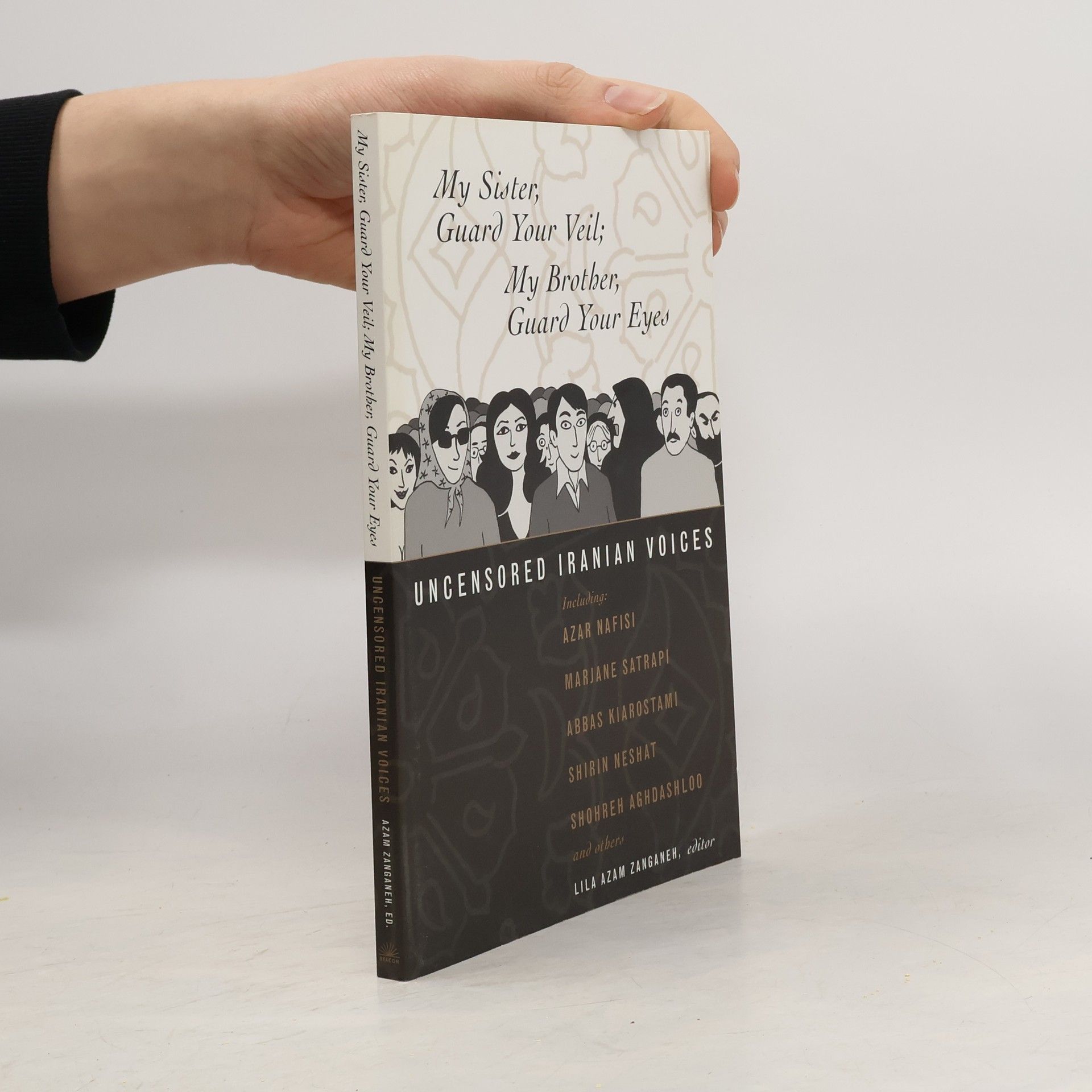

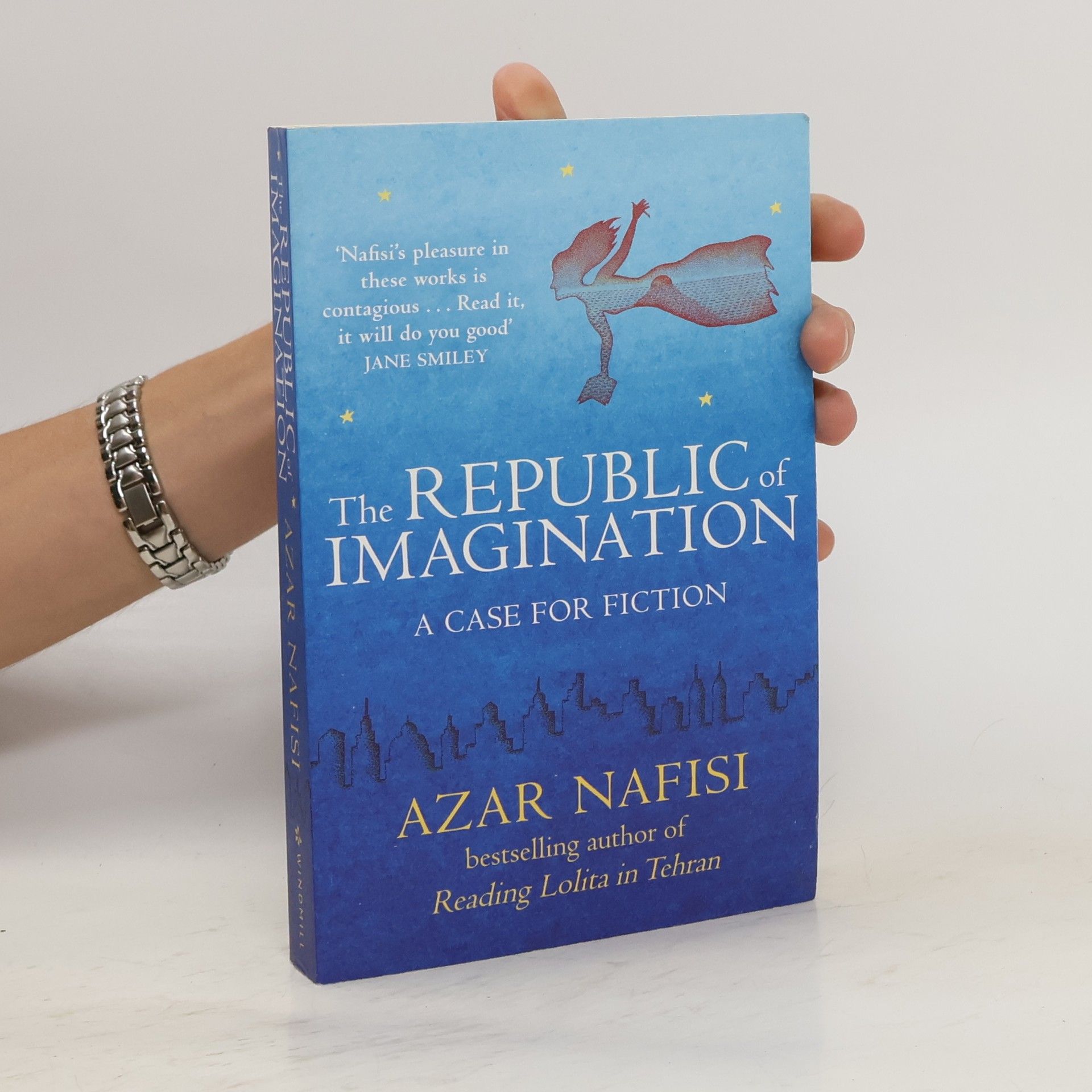
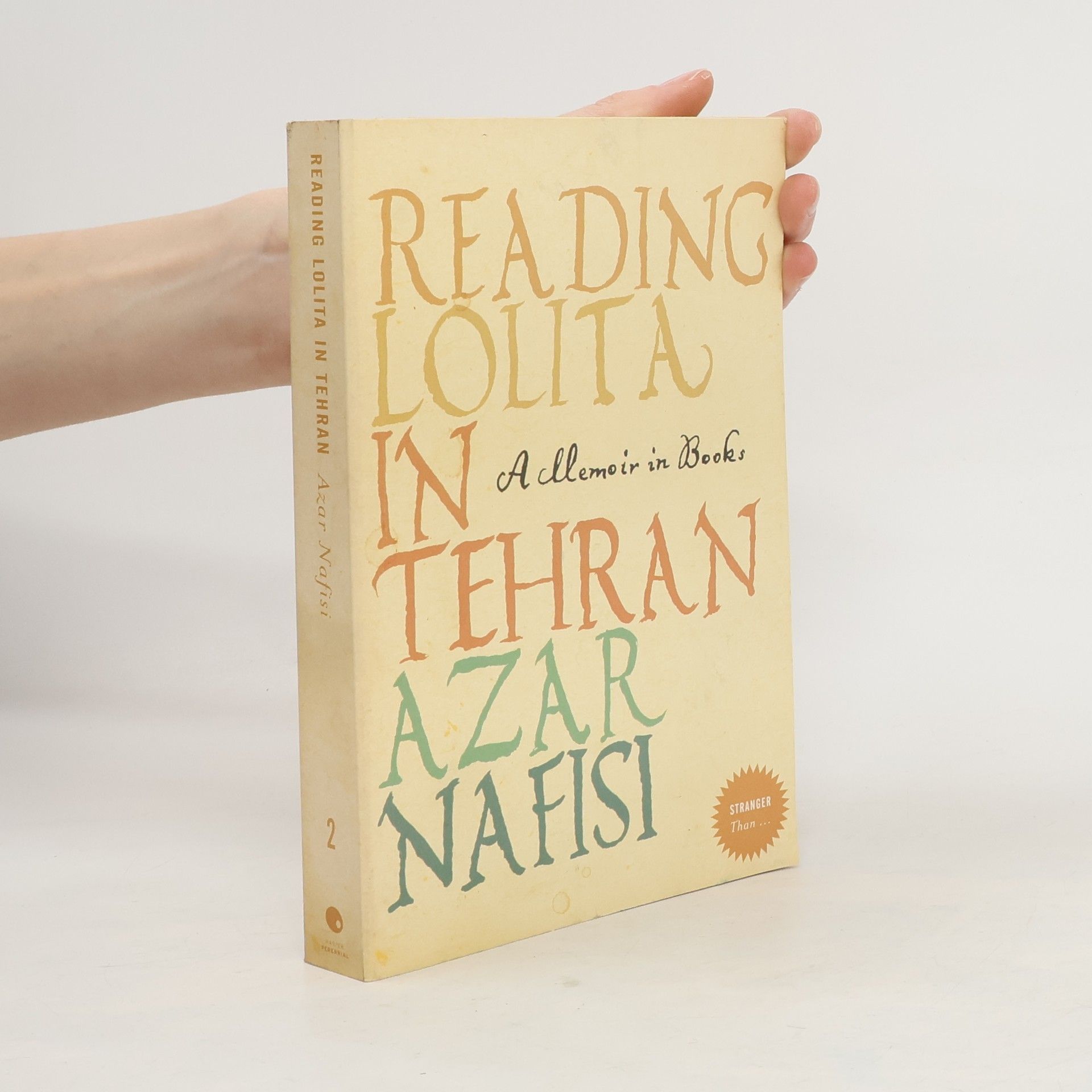

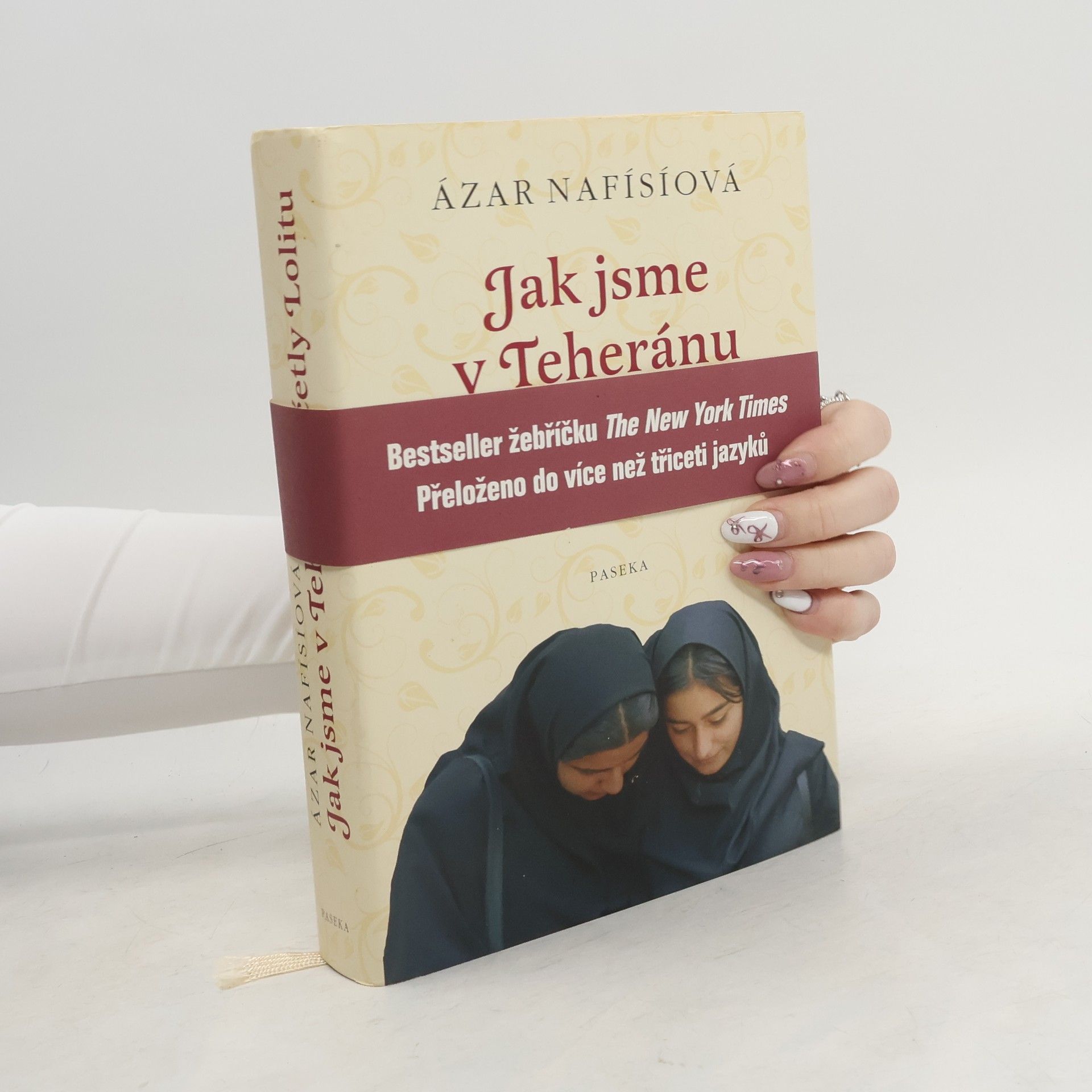
Read Dangerously
- 256 stránek
- 9 hodin čtení
The New York Times bestselling author of Reading Lolita in Tehran returns with a guide to the power of literature in turbulent times, arming readers with a resistance reading list, ranging from James Baldwin to Zora Neale Hurston to Margaret Atwood.What is the role of literature in an era when the president wages war on writers and the press? What is the connection between political strife in our daily lives, and the way we meet our enemies on the page in fiction? How can literature, through its free exchange, affect politics?In this galvanizing guide to resistance literature, Nafisi seeks to answer these questions. Drawing on her experiences as a woman and voracious reader living in the Islamic Republic of Iran, her life as an immigrant in the United States, and her role as literature professor in both countries, she crafts an argument for why, in a genuine democracy, we must engage with the enemy, and how literature can be a vehicle for doing so.Structured as a series of letters to her father, Baba, who taught her as a child about how literature can rescue us in times of trauma, Nafisi explores the most probing questions of our time through the works of Toni Morrison, Salman Rushdie, James Baldwin, Margaret Atwood, and more.
Reading Lolita in Tehran 2
- 370 stránek
- 13 hodin čtení
Every Thursday morning for two years in the Islamic Republic of Iran, a bold and inspired teacher named Azar Nafisi secretly gathered seven of her most committed female students to read forbidden Western classics. As Islamic morality squads staged arbitrary raids in Tehran, fundamentalists seized hold of the universities, and a blind censor stifled artistic expression, the girls in Azar Nafisi's living room risked removing their veils and immersed themselves in the worlds of Jane Austen, F. Scott Fitzgerald, Henry James, and Vladimir Nabokov. In this extraordinary memoir, their stories become intertwined with the ones they are reading. Reading Lolita in Tehran is a remarkable exploration of resilience in the face of tyranny and a celebration of the liberating power of literature.
The Republic of Imagination
- 352 stránek
- 13 hodin čtení
From the author of the bestselling memoir Reading Lolita in Tehran comes a powerful and passionate case for the vital role of fiction today. Ten years ago, Azar Nafisi electrified readers with her million-copy bestseller, Reading Lolita in Tehran, which told the story of how, against the backdrop of morality squads and executions, she taught The Great Gatsby and other classics to her eager students in Iran. In this exhilarating follow-up, Nafisi has written the book her fans have been waiting for: an impassioned, beguiling and utterly original tribute to the vital importance of fiction in a democratic society. Taking her cue from a challenge thrown to her at a reading, she energetically responds to those who say fiction has nothing to teach us today. Blending memoir and polemic with close readings of her favourite novels, she invites us to join her as citizens of her 'Republic of Imagination', a country where the villains are conformity, and orthodoxy and the only passport to entry is a free mind and a willingness to dream.
Things I've been silent about
- 368 stránek
- 13 hodin čtení
"Absorbing . . . a testament to the ways in which narrative truth-telling—from the greatest works of literature to the most intimate family stories—sustains and strengthens us.”—O: The Oprah Magazine In this stunning personal story of growing up in Iran, Azar Nafisi shares her memories of living in thrall to a powerful and complex mother against the backdrop of a country’s political revolution. A girl’s pain over family secrets, a young woman’s discovery of the power of sensuality in literature, the price a family pays for freedom in a country beset by upheaval—these and other threads are woven together in this beautiful memoir as a gifted storyteller once again transforms the way we see the world and “reminds us of why we read in the first place” (Newsday). Praise for Things I've Been Silent About “Deeply felt . . . an affecting account of a family’s struggle.”—New York Times “A gifted storyteller with a mastery of Western literature, Nafisi knows how to use language both to settle scores and to seduce.”—New York Times Book Review “An immensely rewarding and beautifully written act of courage, by turns amusing, tender and obsessively dogged.”—Kirkus Reviews (starred review) “A lyrical, often wrenching memoir.”—People
My Sister, Guard Your Veil; My Brother, Guard Your Eyes
Uncensored Iranian Voices
- 132 stránek
- 5 hodin čtení
In this groundbreaking anthology, Lila Azam Zanganeh explores the complexities of Iran, challenging the simplistic narratives that dominate American perceptions. Contributors like Azar Nafisi and Marjane Satrapi present a multifaceted view of a nation often misrepresented as either a member of the "axis of evil" or a place of youthful rebellion. This collection aims to dismantle cultural and political clichés, featuring diverse topics such as feminism, sexuality, and political dissent under the Islamic Republic. Reza Aslan clarifies that Iran is better described as a "mullahcracy" than a theocracy, while Mehrangiz Kar discusses how the Iranian Revolution sparked a feminist movement. Azadeh Moaveni uncovers Tehran's underground parties and sexual culture, and Gelareh Asayesh addresses the racial identity of Iranians in America. Naghmeh Zarbafian reflects on the experience of reading censored literature, and Roya Hakakian reminisces about the joyful past of Iranian Jews. With a compelling introduction by Zanganeh, this collection seeks to reshape understanding of Iran, revealing the intricate realities of its society—caught between political Islam, modern media, and stark social inequalities.
The great national epic of Persia is presented in the most complete English-language edition and definitive translation by Dick Davis, available in a deluxe edition by Penguin Classics. The stories of the Shahnameh have deeply influenced cultures wherever Persian influence has spread, evident in works like The Kite Runner and the poetry of Rumi and Hafez. Composed by Ferdowsi in the late tenth century, this monumental narrative recounts the pre-Islamic history of Iran, from the mythic creation to the Arab invasion of the seventh century. Its grandeur and psychological depth are remarkable, featuring classic tales such as the tragedy of Rostam and Sohrab. Dick Davis, described as “our pre-eminent translator from the Persian” (Washington Post), offers a comprehensive translation that beautifully combines prose and verse, allowing the poetry to resonate while providing modern readers with clear explanations. For over seventy years, Penguin has led in publishing classic literature in English, offering more than 1,700 titles that form a global bookshelf of history's best works. Readers rely on this series for authoritative texts, enhanced by introductions and notes from distinguished scholars and contemporary authors, along with up-to-date translations by award-winning translators.
Ein kämpferischer Appell für Literatur als Mittel des Widerstands und Empowerment: New-York-Times-Bestsellerautorin Azar Nafisi (»Lolita lesen in Teheran«) mit einem aufrüttelnden Text über die Macht der Bücher. In Form von Briefen an ihren verstorbenen Vater (früherer Bürgermeister von Teheran und politischer Gefangener des Schah-Regimes), der ihr in ihrer Kindheit die Augen dafür öffnete, wie Literatur uns in Zeiten der Krise retten kann, stellt Nafisi die brennenden Fragen unserer Zeit – mit ihrer Lektüreliste bewaffnet Nafisi die Leser*Innen für den Widerstand. Sie greift dabei auf ihre persönlichen Erfahrungen als Frau, als Leser*in und Lehrende in Teheran zurück, die von der Universität verwiesen wurde, als sie sich weigerte, den Schleier zu tragen, und schließlich in die USA emigrierte, wo sie als Professorin Literatur unterrichtete. Nafisi ist überzeugt: Für das Überleben der Demokratie weltweit ist das Lesen unabdingbar. Ob James Baldwin oder Margret Atwood, ob Platon oder Salman Rushdie, Lektüre ist immer ein Weg in Richtung Freiheit: persönlich und politisch.
Nach dem weltweiten Erfolg von „Lolita lesen in Teheran“ erzählt Azar Nafisi nun die bewegende Geschichte ihrer zerrissenen Familie. Die junge Azar ist gefangen zwischen ihrer eindrucksvollen, aber komplizierten Mutter und ihrem liebevollen, literaturbegeisterten Vater. Diese Familiensaga entfaltet sich vor dem Hintergrund der Unruhen im Iran während der Schah-Zeit. Azar reflektiert über ihre Kindheit in Teheran, geprägt von der schwierigen Beziehung zur Mutter, die wenig Liebe zeigt, und dem Vater, der ihr die Leidenschaft für Literatur vermittelt und sie gegen die Mutter unterstützt. Die Erzählung umfasst ihre Schul- und Studienjahre im Westen, die Zeit ohne ihren inhaftierten Vater, ihre erste hastige Ehe mit einem Mann, den sie nicht liebt, und ihre Rückkehr in den Iran nach der Islamischen Revolution, wo sie ihre akademische Laufbahn beginnt. Auch ihre zweite Ehe und die schlussendliche Auswanderung in die USA sind Teil ihrer Geschichte. „Die schönen Lügen meiner Mutter“ bietet persönliche Einblicke in eine Kindheit, die von einem autoritären Regime geprägt ist, und beleuchtet die kleinen und großen Geheimnisse einer Familie.
Czytaj niebezpiecznie Wywrotowa siła literatury na burzliwe czasy
- 256 stránek
- 9 hodin čtení
„Czy powinno nas dziwić, że niektórzy znów cytują Baldwina, kiedy na ulicach tłumy domagają się sprawiedliwości?” – pyta Azar Nafisi w książce, której nadała formę listów do ojca wprowadzającego ją przed laty w świat literatury. Autorka „Czytając «Lolitę» w Teheranie” powraca tu do swoich doświadczeń akademiczki w reżimowym Iranie i emigrantki w Stanach Zjednoczonych, ale przede wszystkim pisze o życiu w epoce Trumpa. Wtedy to ulice amerykańskich miast zapełniły się tysiącami kobiet w strojach nawiązujących do „Opowieści podręcznej”, a potem tłumami protestujących przeciwko policyjnej przemocy i rasizmowi. Zdaniem Nafisi właśnie wtedy też swoją moc po raz kolejny zademonstrowała literatura – jako katalizator gniewu wymierzonego we władzę, jako złowieszcza przestroga czy wreszcie jako subtelny instrument poznania, umożliwiający wyjście poza schemat własnego myślenia. Nafisi przygląda się najbardziej palącym problemom współczesności przez pryzmat powieści takich autorek i autorów, jak Margaret Atwood, Salman Rushdie, Ray Bradbury, Toni Morrison, James Baldwin, David Grosman i Iljas Churi. Tworzy dla nas swoistą listę lektur na ciężkie czasy, pokazując, dlaczego warto podjąć ryzyko i przeczytać je na poważnie.


